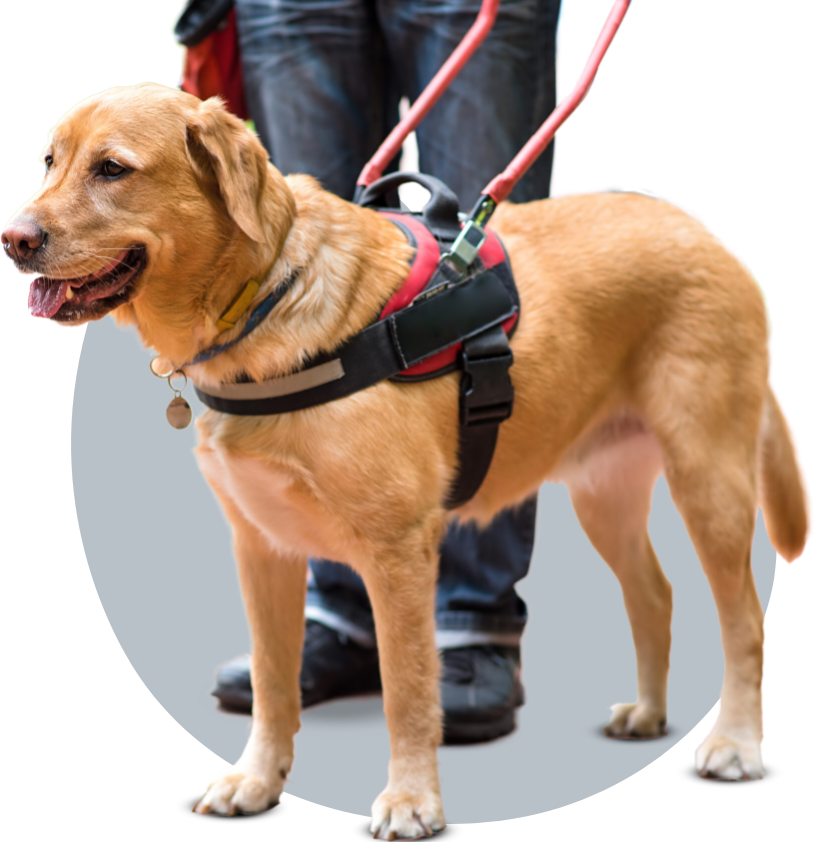German Shepherds: Everything You Need to Know

German Shepherds are one of the most versatile and intelligent dog breeds, known for their loyalty, courage, and unmatched work ethic. Whether you’re considering adding a German Shepherd to your family or simply want to learn more about this remarkable breed, this guide will cover their key characteristics, health concerns, grooming needs, exercise and training requirements, diet tips, and their potential as service dogs or emotional support animals.
Key Characteristics
Appearance
German Shepherds are medium to large-sized dogs with a well-muscled, athletic build. They typically weigh between 50-90 pounds and stand 22-26 inches tall at the shoulder. They have a double coat with a dense undercoat and a straight, coarse outer coat, which can be a variety of colors, including black, tan, sable, or black and red.
Temperament
Known for their loyalty and intelligence, German Shepherds are confident, courageous, and eager to please. They are highly protective of their families, making them excellent watchdogs. They are naturally curious and alert, with a strong instinct for working, whether it’s herding, protecting, or assisting.
Intelligence and Work Drive
German Shepherds are among the most intelligent dog breeds, ranking consistently in the top three. They are fast learners and thrive when given tasks, making them excellent in various working roles such as police, military, search and rescue, and therapy.
History of the German Shepherd

German Shepherds were originally bred in Germany in the late 19th century by Captain Max von Stephanitz. His goal was to create the perfect working dog for herding sheep, which led to the breed’s strong work ethic and versatility. Over time, the breed’s intelligence, loyalty, and strength made them popular in many fields, including law enforcement, search and rescue, and service work. German Shepherds became famous worldwide, especially after their appearances in early films like Rin Tin Tin, which helped showcase their remarkable skills and loyalty.
Common Health Issues for German Shepherds
Hip and Elbow Dysplasia
This genetic condition involves the improper formation of the hip and elbow joints, leading to arthritis and pain. It’s one of the most common health problems in German Shepherds, especially as they age. Regular vet checkups and maintaining a healthy weight can help reduce the risk.
Degenerative Myelopathy
This is a progressive disease that affects the spinal cord, leading to loss of coordination and eventual paralysis of the hind legs. While there’s no cure, physical therapy and supportive care can slow the disease’s progression.
Bloat (Gastric Dilatation-Volvulus)
Bloat occurs when the stomach fills with gas and twists, cutting off blood flow. This condition is life-threatening and requires immediate medical attention. Feeding your German Shepherd smaller meals and avoiding exercise after eating can help reduce the risk.
Allergies
German Shepherds are prone to skin allergies, which can be triggered by environmental factors like pollen or specific food ingredients. Symptoms include itching, redness, and hot spots. Identifying and eliminating allergens can help, as well as using vet-approved treatments.
Grooming Needs for German Shepherd
German Shepherds have a double coat that sheds moderately throughout the year and heavily during spring and fall. Regular grooming is essential to keep their coat and skin healthy and to reduce shedding around the house.
Brushing
To keep your German Shepherd’s coat in top condition, brushing 2-3 times a week is recommended. During shedding season, daily brushing will help manage the loose undercoat and prevent matting.
Bathing
Bathe your German Shepherd once every 4-6 weeks or as needed, especially after heavy outdoor activity. Over-bathing can strip the coat of natural oils, leading to dry skin, so it’s best to use dog-specific shampoos.
Great All Natural German Shepherd Shampoo
Trimming
Although they don’t require a full haircut, trimming the hair around their feet, ears, and tail can help them look neat and prevent matting.
Nail and Ear Care
Trim their nails every 3-4 weeks to avoid overgrowth and discomfort. Also, clean their ears regularly to prevent infections, especially since their erect ears are exposed to dirt and debris.
Exercise and Training Requirements for German Shepherds
German Shepherds are active and intelligent dogs that thrive on physical and mental stimulation. Without proper exercise, they can become bored and destructive.
Daily Exercise
German Shepherds require at least 1-2 hours of exercise each day. Activities like running, hiking, and playing fetch are great for burning off energy. They also enjoy mentally challenging games such as puzzle toys and agility training.

Training
German Shepherds are highly trainable and excel in obedience and advanced training. Start training early and focus on positive reinforcement techniques. They respond well to praise, treats, and play as rewards. Socialization from a young age is crucial to ensure they are well-adjusted and comfortable in different environments.
Because of their intelligence, they thrive in structured environments, such as obedience classes, agility training, or even scent work and protection training.
Diet Tips for German Shepherds
A proper diet is essential for the health and longevity of a German Shepherd. Their diet should be balanced, providing the necessary nutrients to support their active lifestyle and prevent common health issues.
High-Quality Dog Food
Feed your German Shepherd high-quality commercial dog food that is rich in protein and has meat as the first ingredient. Protein helps maintain muscle mass, while fat provides the energy they need for daily activities.
Portion Control
To avoid obesity, feed your dog according to their size, age, and activity level. Most German Shepherds do well with two meals per day. Overfeeding can lead to obesity, which exacerbates issues like joint pain and hip dysplasia.
Joint Supplements
Since German Shepherds are prone to hip dysplasia and other joint issues, many owners add glucosamine and chondroitin supplements to their diet to support joint health.
Hydration
Always provide your German Shepherd with fresh water, especially after exercise, as they can become dehydrated quickly.
German Shepherds as Service Dogs and Emotional Support Animals
German Shepherds are highly valued as service dogs and emotional support animals (ESAs) due to their intelligence, loyalty, and work ethic.
Service Dogs
German Shepherds are commonly trained as police dogs, military dogs, guide dogs, and search and rescue dogs, but may also be trained as hearing alert dogs, seizure alerts dogs, psychiatric service dogs, and mobility dogs . Their ability to learn commands quickly, coupled with their courage and focus, makes them exceptional in these roles. They excel in tasks like guiding the visually impaired, providing mobility assistance, and even detecting medical conditions like seizures.
Emotional Support Animals (ESAs)
Although they don’t require the extensive training that service dogs do, German Shepherds make excellent emotional support animals. Their protective and empathetic nature provides comfort to those with anxiety, PTSD, or depression. Their mere presence can reduce stress and provide emotional stability.
There are no specific training requirements for ESAs, but basic obedience and good behavior in public are essential.
Legal Aspects of ESAs and Service Dogs
It’s important to understand the legal differences between emotional support animals and service dogs:
Emotional Support Animals are not granted the same public access rights as service dogs but are allowed to live in housing that otherwise prohibits pets, thanks to the Fair Housing Act. This doesn’t mean you cannot take them out in public; however, it’s management’s discretion to grant access, so we recommend you call ahead to obtain approval so that you’re not met with any resistance upon entering their establishment.
Service Dogs, on the other hand, have full public access rights, including entry to restaurants, stores, and public transportation. These dogs must be specifically trained to perform tasks related to their owner’s disability.
Understanding these distinctions is crucial when deciding whether to pursue an ESA or service dog status for your German Shepherd.
Conclusion
German Shepherds are truly remarkable dogs, known for their intelligence, loyalty, and versatility. Whether you’re looking for a family companion, a working dog, or a service animal, German Shepherds have the temperament and skills to excel in many roles. By understanding their grooming needs, health concerns, exercise requirements, and dietary tips, you can ensure that your German Shepherd lives a long, happy, and fulfilling life.













































































